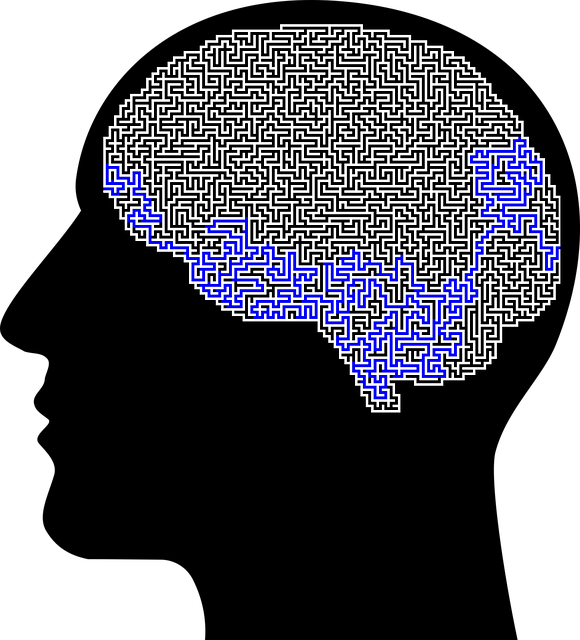Mental wellness programs for children utilize tailored therapeutic approaches like CBT, mindfulness, and play therapy to address anxiety, depression, trauma, and behavioral challenges. A growing focus on gender-affirming care creates inclusive environments for transgender and nonbinary youth, reducing mental illness stigma. These programs combine specialized therapy, coaching, and education to normalize conversations around mental health. Evaluating these initiatives requires a nuanced approach beyond numerical metrics, incorporating observational techniques, client feedback, and parent reports to assess emotional regulation, mood management, and inner strength development. Therapy for children gender-affirming care benefits from case studies refining tailored programs for diverse participants, contributing to comprehensive support and improved outcomes.
Mental wellness programs for children have evolved to include diverse approaches, including therapy and gender-affirming care. This article explores effective evaluation methods for these programs, comparing traditional techniques with innovative practices. We delve into the significance of understanding specific child therapy interventions and assess their effectiveness. Additionally, a case study approach is presented to highlight how customizing programs can yield optimal results, especially in the context of therapy for children and gender-affirming care.
- Understanding Mental Wellness Programs for Children
- The Role of Gender-Affirming Care in Therapy
- Evaluation Methods: Traditional vs Innovative Techniques
- Assessing the Effectiveness of Child Therapy Interventions
- Customizing Programs for Optimal Results: A Case Study Approach
Understanding Mental Wellness Programs for Children

Mental wellness programs tailored for children are designed to address a wide range of issues that impact young minds, from anxiety and depression to trauma and behavioral challenges. These programs often incorporate therapeutic approaches such as cognitive-behavioral therapy (CBT), mindfulness practices, and play therapy, which are adapted to be age-appropriate and engaging for children. The goal is to foster resilience, emotional intelligence, and coping mechanisms that will serve them well throughout their lives.
One emerging area of focus in children’s mental wellness is gender-affirming care. This involves providing supportive environments and resources for young individuals who identify as transgender or nonbinary, helping them navigate their identities with dignity and self-acceptance. Mental illness stigma reduction efforts within these programs aim to create inclusive spaces where children feel understood and encouraged to seek help without fear of judgment. Through a combination of specialized therapy, mental wellness coaching programs development, and mental health education programs design, these initiatives strive to normalize conversations around mental health and promote overall well-being for all children.
The Role of Gender-Affirming Care in Therapy

The integration of gender-affirming care in therapy has emerged as a powerful approach to supporting individuals, particularly children, navigating their mental wellness journeys. This method recognizes and validates the inherent gender identity of clients, fostering an environment that promotes self-acceptance and reduces internalized stigma. By encouraging open discussions about gender expression and providing specialized care tailored to transgender and non-binary youth, therapists can offer a safe space for exploration and healing.
Incorporating practices such as mindfulness meditation and crisis intervention guidance within the context of gender-affirming care can significantly enhance therapy outcomes. These techniques empower individuals to manage anxiety relief, improve emotional regulation, and develop coping strategies for navigating societal challenges. The holistic approach ensures that therapy goes beyond identifying issues; it focuses on empowering clients to embrace their true selves, thereby fostering resilience and overall mental wellness.
Evaluation Methods: Traditional vs Innovative Techniques

In evaluating mental wellness programs, a key consideration lies in differentiating between traditional and innovative techniques. Traditional methods often rely on standardized assessments and structured interviews, which while reliable, may not always capture the nuanced experiences of individuals, especially children. These conventional approaches can sometimes miss the mark when it comes to understanding complex emotional landscapes and unique personal circumstances.
Innovative evaluation techniques, however, offer a more dynamic and holistic perspective. Incorporating methods like self-esteem improvement through compassion cultivation practices, trauma support services tailored to individual needs, and gender-affirming care can provide richer insights. These approaches not only assess mental health outcomes but also foster growth, enhance resilience, and promote positive transformations in individuals’ lives. By adopting such innovative strategies, programs can better serve those they support, ensuring more effective and meaningful therapy for children.
Assessing the Effectiveness of Child Therapy Interventions

Evaluating the effectiveness of child therapy interventions is a multifaceted process that goes beyond mere numbers and statistics. It’s crucial to assess how well therapeutic approaches address the unique needs of each child, especially in areas such as emotional regulation, mood management, and inner strength development. When it comes to therapy for children, particularly those receiving gender-affirming care, specialized evaluation methods are essential. These should go beyond traditional metrics to include qualitative assessments that capture the child’s experience, self-perception, and family dynamics.
Observational techniques, client feedback, and parent/caregiver reports can offer profound insights into the impact of therapy. For instance, improvements in emotional expression, social interactions, and overall well-being are indicators of successful interventions. Moreover, focusing on skills development, such as coping mechanisms and stress management, allows for a more holistic understanding of each child’s progress. This comprehensive approach ensures that therapy aligns with the child’s growth and resilience, fostering both short-term improvements and long-lasting positive changes.
Customizing Programs for Optimal Results: A Case Study Approach

In the realm of mental wellness programs, a tailored approach often proves to be the most effective. Customizing interventions to meet the unique needs of individuals or communities can significantly enhance outcomes, especially when considering sensitive populations like children and those seeking gender-affirming care. A case study method offers a powerful tool for evaluating and refining these customized programs. By meticulously examining real-life scenarios, mental health professionals can gain valuable insights into what works best for different participants.
For instance, a case study might explore the implementation of therapy for children with gender dysphoria, focusing on the integration of gender-affirming care within existing mental wellness frameworks. This approach allows researchers to assess not only the child’s response to treatment but also the support systems in place, including family dynamics and community resources. Moreover, such studies can contribute to a comprehensive risk assessment for mental health professionals, ensuring they are well-prepared to handle complex cases while fostering inner strength development and trauma support services.
Evaluating mental wellness programs for children, especially those incorporating therapy for children gender-affirming care, is essential for optimizing results. By understanding both traditional and innovative evaluation methods, practitioners can tailor interventions that meet the unique needs of each child. The case study approach, highlighted in this article, demonstrates the power of customization in achieving positive outcomes. As the field progresses, embracing advanced assessment techniques ensures that mental wellness programs continue to evolve and provide effective support for young individuals navigating their emotional well-being.











